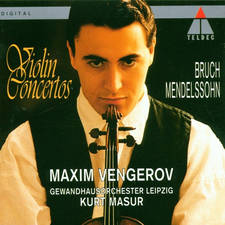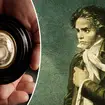Ludwig van Beethoven (1712-73) Beethoven's grandfather
He was born in Malines in Flanders, the son of a master baker. At the age of five he became a student at a choir school, where he stayed for eight years
In 1725, aged 13, he began lessons on the organ and was soon playing in services in various churches. In 1731 he was appointed choir director at the church of St Pierre at Louvain, and the following year he was singing bass at the cathedral of St Lambert in Liège.
In March 1733 - almost certainly at the request of Clemens August, elector of Cologne and Münster - he left Flanders for Germany.
He went first to Cologne and then Bonn, where he was appointed court musician as bass singer.
In 1761, at the age of 49, he was appointed court Kapellmeister, in charge of all Bonn's official musical activities, a position he held until his death at the age of 61.
In September 1733 he married Maria Josepha Poll; they had three children, of whom only one - Johann - survived.
In addition to his musical activities, Kapellmeister Beethoven established a profitable wine business. Probably not unconnected with this, his wife was to become an alcoholic, which resulted in her being placed in a clinic until her death in 1775 ... and his son Johann was ultimately to descend into alcoholism too.
Kapellmeister Beethoven's last known role was as "Brunero, contadino e tamburino" in Lucchesi's L'Inganno scoperto, performed on 13 May 1773 for the Elector's birthday.
He died on the evening of 24 December 1773.
He was described by Beethoven's childhood friend Franz Wegeler as 'a man short of stature, muscular, with extremely animated eyes [who] was highly respected as an artist.'
A portrait of the Kapellmeister by the Electoral Court painter Radoux hung on the wall of the Beethoven's home during Ludwig's childhood. In 1801 he wrote to Wegeler from Vienna asking him to send the portrait by mail coach to him - the only object he ever asked to be forwarded from Bonn to Vienna. The portrait hung on the walls of Beethoven's lodgings for the rest of his life.
He was particularly close to his grandfather, retaining fond memories of him throughout his life, although he was only a week past his third birthday at the time of the old man's death.
Wegeler writes: 'Little [Ludwig] clung with great affection to [his] grandfather ... and even though he lost him so soon, he retained the most vivid, early impression of him. He was fond of talking about his grandfather with his childhood friends, and his pious and gentle mother, whom he loved much more than his very strict father, was often obliged to tell him about his grandfather.’


























